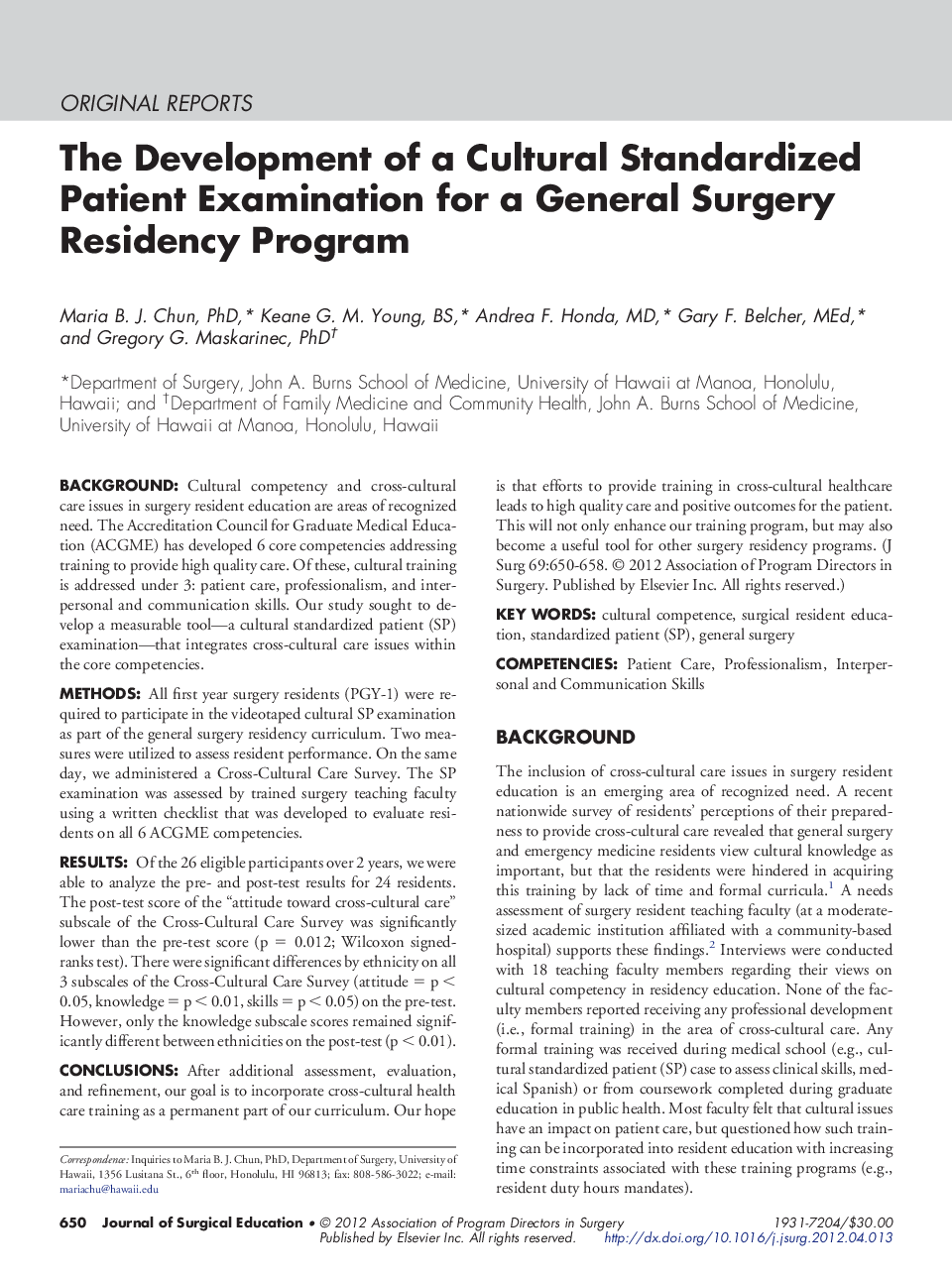| کد مقاله | کد نشریه | سال انتشار | مقاله انگلیسی | نسخه تمام متن |
|---|---|---|---|---|
| 4298176 | 1288344 | 2012 | 9 صفحه PDF | دانلود رایگان |

BackgroundCultural competency and cross-cultural care issues in surgery resident education are areas of recognized need. The Accreditation Council for Graduate Medical Education (ACGME) has developed 6 core competencies addressing training to provide high quality care. Of these, cultural training is addressed under 3: patient care, professionalism, and interpersonal and communication skills. Our study sought to develop a measurable tool—a cultural standardized patient (SP) examination—that integrates cross-cultural care issues within the core competencies.MethodsAll first year surgery residents (PGY-1) were required to participate in the videotaped cultural SP examination as part of the general surgery residency curriculum. Two measures were utilized to assess resident performance. On the same day, we administered a Cross-Cultural Care Survey. The SP examination was assessed by trained surgery teaching faculty using a written checklist that was developed to evaluate residents on all 6 ACGME competencies.ResultsOf the 26 eligible participants over 2 years, we were able to analyze the pre- and post-test results for 24 residents. The post-test score of the “attitude toward cross-cultural care” subscale of the Cross-Cultural Care Survey was significantly lower than the pre-test score (p = 0.012; Wilcoxon signed-ranks test). There were significant differences by ethnicity on all 3 subscales of the Cross-Cultural Care Survey (attitude = p < 0.05, knowledge = p < 0.01, skills = p < 0.05) on the pre-test. However, only the knowledge subscale scores remained significantly different between ethnicities on the post-test (p < 0.01).ConclusionsAfter additional assessment, evaluation, and refinement, our goal is to incorporate cross-cultural health care training as a permanent part of our curriculum. Our hope is that efforts to provide training in cross-cultural healthcare leads to high quality care and positive outcomes for the patient. This will not only enhance our training program, but may also become a useful tool for other surgery residency programs.
Journal: Journal of Surgical Education - Volume 69, Issue 5, September–October 2012, Pages 650–658